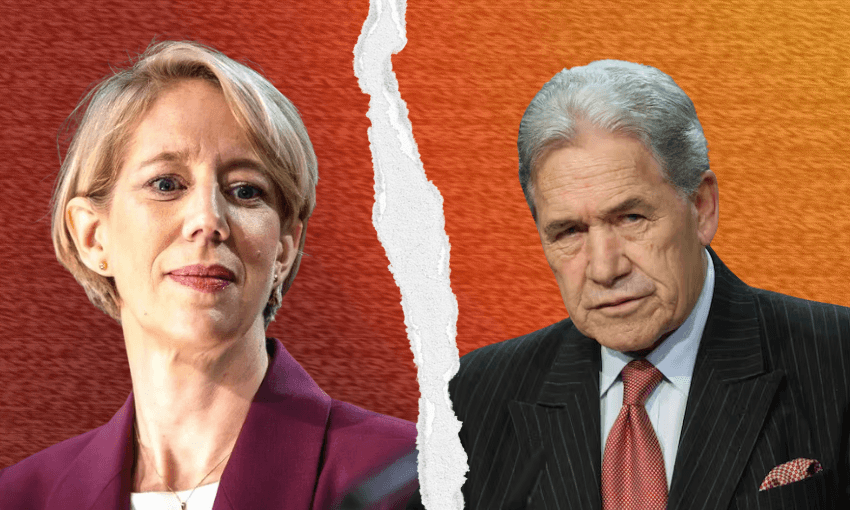New Zealand’s trade policy could be set for a shakeup under the new Labour government. A likely target is investor-state dispute resolution provisions in New Zealand’s free trade agreements, which may go from status quo to status no. Chris Gillies explains why that’s not a good idea.
Investor-state dispute resolution (ISDS) is a dispute resolution framework commonly included in free trade deals such as the Trans-Pacific Partnership (TPP) to promote foreign investment.
The main idea is that foreign investors are more likely to invest in countries that allow ISDS because there’s no fear of being subjected to “unfair” hometown justice. If a government wrongly harms a foreign investment, the foreign investor can seek damages from the government in a special dispute settlement tribunal, and such tribunals aren’t part of the host country’s normal court system – they’re typically set up to hear a particular dispute, and they’re supposed to ensure neutral decisions. Without ISDS, a foreign investor generally has to use the foreign country’s domestic court system to sue a host government.
But the notion that ISDS gives foreign investors special privileges that the rest of us don’t get is where the controversy lies. Historically, National and Labour governments have been more or less on the same page regarding ISDS – it was included in the 2008 New Zealand-China free trade agreement (negotiated under the last Labour government), and New Zealand has included ISDS in its free trade agreements since then.
However, New Zealand First and the Greens have been vocal opponents of any form of ISDS for some time now, and Labour’s support for it has weakened in recent years. Public controversy over ISDS peaked in 2016 during the concluding stages of the Trans-Pacific Partnership Agreement (TPPA) and has since subsided.
But, with a new government and a number of trade deals still in the pipeline, New Zealand’s policy on the dispute resolution scheme is likely to come into question once more, and this is particularly so given that the TPPA remains alive, albeit with a reduced number of parties following the United States’ withdrawal from the agreement in January 2017. Given that New Zealand First and the Greens are united in their opposition to ISDS, Labour may agree to adopt a strict anti-ISDS policy as a coalition compromise. Labour has already proved it is willing to break from the status quo on trade agreements; in November 2016, Labour voted against implementing legislation for the TPPA, the first time it has done so for a free trade agreement.
In essence, New Zealand’s opponents to the system ask why the New Zealand government would ever want to give foreign investors a special way to sue the state – if the New Zealand domestic court system is good enough for everyone else, why not for foreign investors? These are fair questions, and indeed, New Zealand arguably stands to gain much less from it than other countries. Our relatively high levels of inward foreign investment outweigh our very low levels of outward foreign investment, so there may be more chance of being sued than suing others. In addition, most of our outward investment sits in countries with robust legal systems, calling into question the need for a “neutral” ISDS system in the first place.
Nevertheless, a strict anti-ISDS stance would not be in New Zealand’s best interests. Its inclusion is non-negotiable for many of the countries New Zealand would really like to have free trade agreements with and in such cases, New Zealand is presented with a stark choice: concede ISDS and gain broader trade concessions, or object to ISDS and gain reduced trade concessions, or fail to get an agreement at all. What’s more, failure to conclude a free trade agreement with a significant trading partner puts New Zealand at a relative disadvantage to other economies which manage to do so.
In short, ISDS is sometimes part of the price New Zealand has to pay to secure free trade benefits with its most significant trading partners. Seen in this light, making the dispute resolution scheme a non-negotiable issue in negotiations with our biggest trading partners seems reckless. As Winston Peters acknowledged in his post-election speech on October 19 “we live or die by exporting”. This means that our trade negotiators must retain flexibility in negotiating better export terms in New Zealand’s best interests, including with respect to ISDS.
Regulatory chill is perhaps the principal concern of opponents in New Zealand. The concern is that the threat of ISDS litigation might have a “chilling effect” on the New Zealand government’s legislative agenda; there is evidence New Zealand has already experienced regulatory chill due to its existing ISDS commitments. Passage of tobacco plain packaging legislation into law in New Zealand took close to three years and, in part, this was because the government wanted to monitor the progress of the case brought against Australia by tobacco company Phillip Morris in response to similar legislation.
New Zealanders should not be overly concerned with the Philip Morris example, and with the spectre of ISDS-associated regulatory chill in general, for two main reasons. First, there is a strong argument that the Phillip Morris example of regulatory chill is an outlier case particular to the tobacco industry which is unlikely to reoccur elsewhere. Second, the Phillip Morris case was brought under an “old”, early-1990’s-style investment treaty. By more recent standards, the ISDS provisions used by Philip Morris to sue the Australian government would be considered deficient. The ISDS model followed by New Zealand since 2008 is much more balanced in favour of the right of governments to regulate in the public interest, particularly with regard to public health and the environment.
Opponents of ISDS in New Zealand also raise credible concerns about the legitimacy of ISDS tribunals. Common concerns include a lack of transparency, questionable independence and impartiality of arbitrators, lack of binding precedent and an appeal mechanism, and high cost – there is broad agreement between nations the ISDS system which prevails today must continue to be improved. The key point to note for present purposes, however, is there are relatively few countries who want to completely remove ISDS from the mix. Instead of point-blank opposing ISDS, it would be much more productive for New Zealand to advocate for measures which best address concerns with the legitimacy of the system.
Finally, it should not be ignored that agreeing to ISDS does benefit New Zealand investors overseas in circumstances where foreign domestic courts might not provide due process of law. This benefit may become more substantial over time – successive New Zealand governments have promoted increased outward investment by New Zealanders overseas.
This is not to say that New Zealand should unquestioningly include ISDS in its free trade agreements, or be content with the models it has agreed to date. Maintaining a flexible approach to ISDS means retaining the ability to say “yes”, “no”, or “maybe” on a case-by-case basis, and New Zealand’s new government should not forget this. Over recent decades New Zealand has demonstrated it can influence best practice in international trade, and it should continue to do so to improve the current system. But this means New Zealand must be prepared to walk away from trade deals containing ISDS provisions not only if it cannot negotiate appropriate concessions in return, but also if the ISDS provisions themselves do not reflect best practice.
Failure to do so may result in New Zealand unjustifiably ceding sovereignty, and/or committing itself to illegitimate dispute resolution mechanisms. However, an outright “no” to ISDS by a country that lives or dies on its exports would be naïve and counterproductive.
Chris Gillies is a New Zealand lawyer and recent graduate in International Business & Economic Law from Georgetown University Law Center in Washington DC.
The Spinoff’s business content is brought to you by our friends at Kiwibank. Kiwibank backs small to medium businesses, social enterprises and Kiwis who innovate to make good things happen.
Check out how Kiwibank can help your business take the next step.



